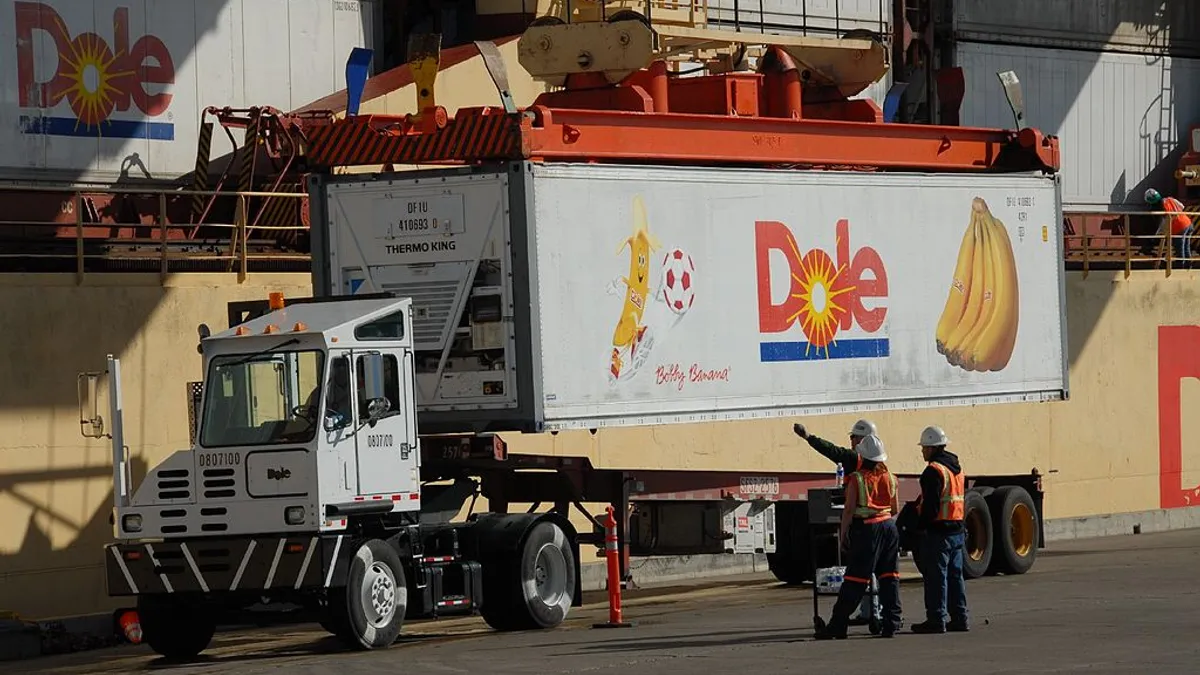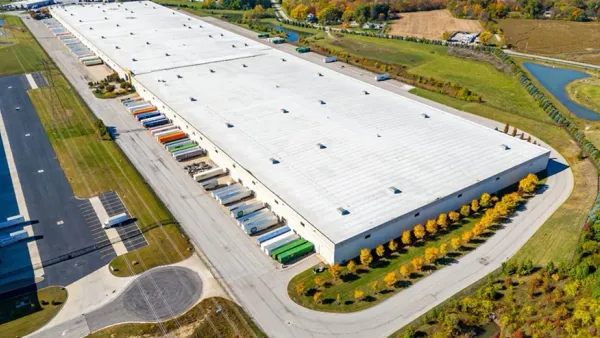The following is a guest post written by Todd Bryant, president and founder of Bryant Surety Bonds.
As of April 6, 2017, new regulations for the transportation of human and animal foods are in place. The rule on sanitary transport of foods includes new requirements for shippers, carriers and brokers that are intended to reduce and eliminate the contamination of foods on their way "from farm to table.”
To find out more about the new FDA food regulations, read on!
Who is and isn't covered by the new FDA food safety regulations?
The 'Sanitary Transportation of Human and Animal Food' rule of the FDA is directed at "shippers, receivers, loaders and carriers who transport food in the United States by motor or rail vehicle, whether or not the food is offered for or enters interstate commerce."
It is important to note that the rule also applies to freight brokers who are considered equivalent to shippers. The rule further applies to anyone outside the U.S. who ships food to the U.S. if that food is intended for consumption or distribution in the U.S.
The rule provides for the possibility of a waiver from the requirements of the rule under the conditions that a business:
-
Only transports bulk and finished grade "A" milk and milk products and has been inspected by the NCIMS
-
Operates a legal food establishment and provides food directly to consumers, and only receives the food or delivers it directly to consumers or other locations of the establishment
-
Engaged in the transportation of molluscan shellfish in ways permitted by the state National Shellfish Sanitation Program (NSSP) authority
The rule also features a list of exemptions from the from the requirements sanitary transportation requirements. These include:
-
Those who have less than $500,000 in average annual revenue
-
Transportation performed by a farm, as well as transportation of live food animals (with the exception of molluscan shellfish, unless a waiver is granted)
-
Transportation of food that is simply shipped through the U.S., as well transportation of imported food which will be exported in the future, neither of which are consumed or distributed in the country
-
Transportation of compressed food gasses and food contact substances as defined in section 409(h)(6) of the Federal Food, Drug, and Cosmetic (FD&C) Act
-
Transportation of food which is completely enclosed by a container, though excluding food that requires temperature control for safety
-
Transportation of human byproducts which are used as animal food, and are not further processed
The food safety rules became effective on April 6, 2017 for brokers and shippers who have more than 500 employees, as well as motor carriers with $27.5 million in annual receipts or more. For all other businesses who are covered under the rule, the effective date of the requirements is April 6, 2018.
What are the general requirements of the rule?
Under safety regulations, there are four main areas of operations that shippers, brokers, carriers and others will need to make changes in. These are:
-
Vehicles and equipment
-
Transportation operations
-
Training
-
Records
The safety regulations will require those operating transportation equipment to ensure that it is maintained and designed in a way that does not pose a risk for the food being transported to become unsafe. Such equipment must be specifically designed for the transportation of foods or be capable of maintaining temperatures under which food can be transported safely. It must also be adequately cleanable.
Operations need to ensure that all necessary conditions for the proper handling and storage of food are maintained. These include proper transportation and storage temperatures, proper handling of raw food and preventing ready to eat food from being contaminated by raw foods, as well as contamination by non-food items.
In terms of training, the FDA expects shippers to be responsible for sanitary conditions during transportation and to train their employees how to comply with sanitary transportation practices and requirements. In cases when shippers agree with their carriers that they will be responsible for sanitary conditions it is carriers who need to provide proper training to their personnel.
Finally, carriers and shippers will need to maintain records of all procedures, training and agreements made with respect to the implementation of the requirements. Retaining these records varies depending on their type but does not exceed 12 months.
How to comply with the FDA food safety regulations?
To support shippers, carriers and brokers in complying with the specific requirements of the rule, several FDA training opportunities are highly recommended. The FSMA Technical Assistance Network (TAN) is another resource that can be used by parties who are covered by the rule in order to prepare for compliance. Moreover, the FSMA website also offers a Q&A section which has answers to the most pertinent questions regarding the safety regulations.
Due to the strict surety bonding requirements for freight brokers it is important that brokers who are engaged in the transportation of foods learn as much as they can about the new food safety rules to ensure they stay out of claims and fines.
Todd Bryant is the president and founder of Bryant Surety Bonds. He is a surety bonds expert with years of experience helping freight brokers get bonded and start their business.














